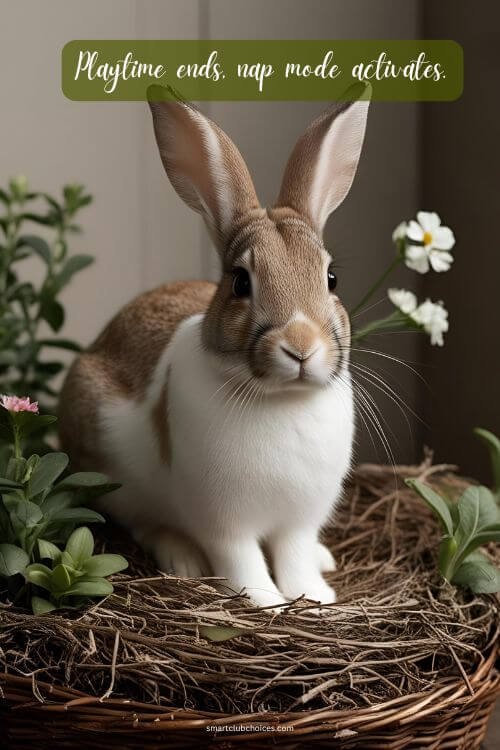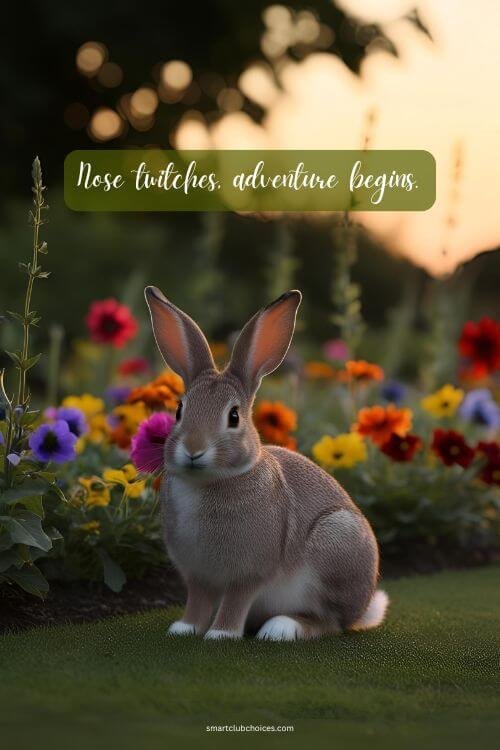Rabbit Care: Keeping Your Bunny Happy and Healthy
So, You Have a Bunny or Want One ?
Rabbits are adorable, intelligent, and full of personality. But despite their cuteness, they require proper care, attention, and commitment.
If you’re thinking about getting a rabbit or already have one hopping around your home, this guide will help you understand how to provide the best possible care for your fluffy friend.
Table of Contents
(1) Creating the Perfect Living Space
Rabbits need plenty of space to stretch, hop, and explore. While some people still think of rabbits as cage pets, they thrive best in a roomy pen or a rabbit-proofed room. Here’s what to consider:
- A Spacious Habitat: Whether you choose a large enclosure or a free-roaming setup, ensure they have enough space to move. Tiny cages are a no-go.
- Rabbit-Proofing Your Home: Rabbits love to chew! Protect wires, furniture, and baseboards by covering them or using deterrents.
- Comfortable Flooring: Hard surfaces can be tough on rabbit feet. Add rugs, mats, or fleece blankets to make their space cozy.
- A Safe Hideout: Rabbits are prey animals, so they need a hideout to retreat when they feel scared or just want some alone time.

(2) A Healthy Diet: What’s on the Menu?
Rabbits have delicate digestive systems, so a proper diet is essential. Their meals should mainly consist of:
- Hay, Hay, and More Hay: This should make up about 80-90% of their diet. It keeps their teeth worn down and their digestive system functioning properly.
- Fresh Vegetables: Leafy greens like romaine lettuce, parsley, and cilantro are great choices. Avoid iceberg lettuce as it has little nutritional value.
- Pellets: High-quality, fiber-rich pellets can be given in moderation but shouldn’t replace hay.
- Fresh Water: Always provide fresh, clean water in a bowl rather than a bottle, as it’s more natural for rabbits to drink from.
- Treats in Moderation: Small amounts of fruits like apples and bananas can be occasional treats, but avoid sugary and processed snacks.
(3) Grooming and Hygiene
Rabbits are self-cleaning animals, much like cats, but they still require some grooming and care:
- Brushing: Long-haired breeds like Angoras need daily brushing, while short-haired rabbits need it weekly to prevent shedding and hairballs.
- Nail Trimming: Rabbit nails grow fast and can become uncomfortable or even cause injury if left too long.
- Ear and Teeth Checks: Keep an eye out for overgrown teeth or ear infections, as these can be common in rabbits.
- Litter Training: Yes, rabbits can be litter-trained! A litter box with rabbit-safe litter (not clumping cat litter) will make cleanup much easier.
(4) Socialization and Mental Stimulation
Rabbits are social creatures that need interaction and stimulation. A bored rabbit is a destructive rabbit, so make sure they have plenty of activities:
- Daily Playtime: Let your rabbit roam in a safe, enclosed space to explore and exercise.
- Toys and Enrichment: Cardboard boxes, tunnels, chew toys, and puzzle feeders keep their minds engaged.
- Bunny Buddies: Rabbits are happier with a companion. If possible, consider adopting a bonded pair, but always introduce new rabbits slowly.
- Human Interaction: Rabbits bond with their owners through gentle petting, hand-feeding, and simply spending time together.
(5) Health and Veterinary Care
Rabbits need specialized veterinary care, so finding a rabbit-savvy vet is crucial. Here are some common health concerns:
- GI Stasis: A life-threatening condition where the digestive system slows down. Signs include lack of appetite and little to no poop.
- Dental Issues: Since rabbit teeth continuously grow, they can develop problems if they don’t wear them down with hay.
- Respiratory Infections: Sneezing, nasal discharge, or labored breathing may indicate an infection that needs vet attention.
- Spaying/Neutering: This helps prevent reproductive cancers and reduces aggressive or territorial behavior.
- Annual Checkups: Routine vet visits help catch potential health issues early.

(6) Understanding Rabbit Behavior
Rabbits have unique ways of communicating, and learning their behaviors will strengthen your bond:
- Binkies and Zoomies: A happy rabbit will jump, twist, and run in excitement.
- Flopping: If a rabbit dramatically flops onto its side, it means they feel completely safe and relaxed.
- Thumping: A rabbit stomping its back foot is warning of danger (or just dramatic annoyance!).
- Chinning: Rubbing their chin on things marks their territory.
- Teeth Grinding: Soft purring-like grinding is a sign of contentment, but loud grinding can indicate pain.
(7) The Long-Term Commitment
Rabbits can live 8-12 years (sometimes longer), so bringing one home is a long-term responsibility. They require time, care, and love just like a dog or cat.
If you’re ready for the commitment, a rabbit will bring endless joy, funny antics, and affectionate companionship into your life.
(8) Conclusion: A Happy Bunny, A Happy Home
Caring for a rabbit takes effort, but the reward is a loving, intelligent pet who will keep you entertained for years. By providing proper housing, diet, medical care, and attention, you’ll ensure your bunny lives a long, healthy, and happy life.
So, are you ready to be a rabbit parent? If the answer is yes, get ready for an adventure filled with furry cuddles, playful zoomies, and a whole lot of love!








